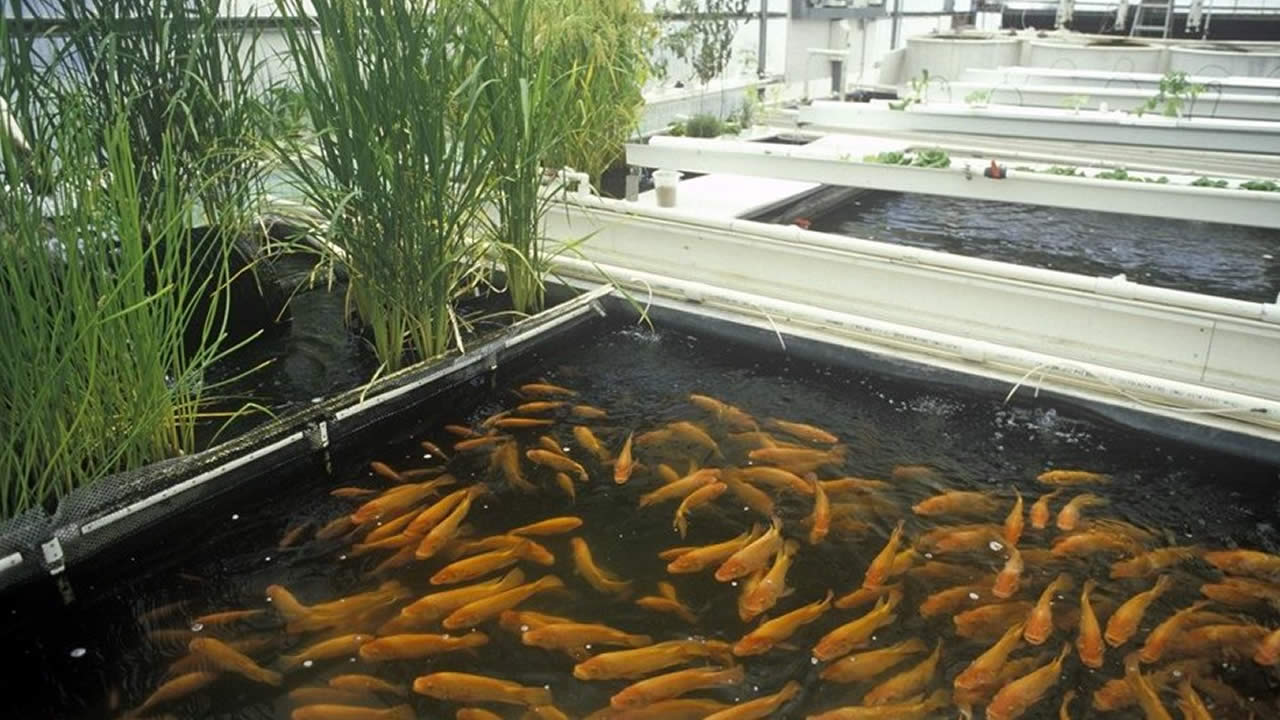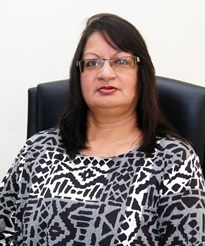
In the Budget 2018-19, the Minister of Finance Pravind Jugnauth announced that the government will provide funds for the sensitisation and training of households in aquaponics for the production of water adaptive vegetables in freshwater ponds and basins and that the Albion Fisheries Research Centre will provide fish fingerlings freely for the aquaponics projects. Aquaponics is considered as an alternative and sustainable technology for the Mauritian farming industry and an economic alternative for the importation of food crops. Stakeholders share with News on Sunday their views on the feasibility of the measure announced and how to promote Aquaponics in Mauritius.
Sunita Facknath, Professor in Sustainable Agriculture at the University of Mauritius: “The measure must be accompanied by local research to determine the right type of aquaponics”
 What are your views about the measure announced in the Budget?
What are your views about the measure announced in the Budget?
It will help in increasing the share of animal protein in people’s diet, and fish is a good and healthy source of protein and good cholesterol. People will also have fresh and healthy vegetables grown in the aquaponics system.
It is also an environmentally friendly way to increase food production while making optimum use of available water, of available space, growing vegetables with little or no fertilisers added, and avoiding the pollution caused by dumping effluent water from aquaculture into the environment.
Do you believe that this measure is sufficient enough to promote aquaponics?
The training and awareness-raising is a start. For it to bear the envisaged fruits, it must be accompanied by local research to determine the right type of aquaponics. There are several ways in which aquaponics can be set up. We need to determine which set-up and type is most suitable for different purposes in the Mauritian context. We need to determine the appropriate conditions, in terms of the water quality, the species and type of vegetables and fish which can be grown in such systems, the number of fish that can be placed in a given size of tank, the safety aspects of the vegetables and fish in the aquaponics system, among others.
What additional measures do you believe should be introduced and why?
In the near future, other measures will have to be considered - establishment of standards and norms for the quality of vegetables and fish emanating from aquaponics, registration of aquaponic businesses for traceability purposes, subsidies on the inputs required, fiscal incentives to those practicing aquaponics as a business, training of extension staff so they can provide right advice and guidance to those practicing aquaponics, and so on.
The Faculty of Agriculture of the University of Mauritius is currently working on a research project on aquaponics, to determine the optimum water quality, species of vegetables and fish to grow together in the aquaponics system, the appropriate density of the fish, the right filter quality, and other similar parameters. This project will provide the necessary data to help us establish a bigger, field level aquaponics unit, and we will be looking for partners in the public and private sectors to partner with us on this bigger project.
Cedric Fayolle: “A fantastic opportunity for the overall farming industry in Mauritius”
 For Cedric Fayolle, Director of Fish & Plants Mauritius Aquaponics, the measure announced by the Prime Minister and Minister of Finance is positive. “I believe it’s a fantastic opportunity for the overall farming industry in Mauritius, as aquaponics has no negative impact on the environment. It saves water, it’s without dangerous chemicals, and it’s efficient and cost effective.”
For Cedric Fayolle, Director of Fish & Plants Mauritius Aquaponics, the measure announced by the Prime Minister and Minister of Finance is positive. “I believe it’s a fantastic opportunity for the overall farming industry in Mauritius, as aquaponics has no negative impact on the environment. It saves water, it’s without dangerous chemicals, and it’s efficient and cost effective.”
However, as he underlines fish farming by itself requires a decent minimum training. “I hope this will be provided by the fisheries. I often have clients contacting me and believing that looking after a few thousand fish in a rearing tank is an easy task. Without it, we can end up with a fish holocaust.”
Cedric Fayolle trusts that the measure is absolutely feasible. “I suppose, the funds will be provided for qualified aquaponics practitioners. That is, those who have studied and understood the science behind it. Without the understanding of a proper aquaponics system management, it can turn into a financial catastrophe as the investment capitals are much higher than hydroponics on the initial setup stage. Aquaponics is a great business but should be started small for those who have no experience at all,” he states.
According to him, the measure announced could boost the aquaponics field. “The advantages of this system are too good “not to get into.” Nevertheless, Cedric Fayolle trusts that the measure is not enough. “The foundation should be much stronger within the ministry on the subject of aquaponics, and I am looking forward to, at some stage, working with the ministry on some of these needs,” he underlines.
Jacqueline Sauzier: “A way to attract young people to avant-garde technologies”
 The General Secretary of the Mauritius Chamber of Agriculture trusts that it is important to promote different agricultural production techniques. Jacqueline Sauzier states that the measure announced in the Budget can be very encouraging for families. “This production method can be a source of income for families by the fish produced and a source of vegetables by the associated production,” she explains.
The General Secretary of the Mauritius Chamber of Agriculture trusts that it is important to promote different agricultural production techniques. Jacqueline Sauzier states that the measure announced in the Budget can be very encouraging for families. “This production method can be a source of income for families by the fish produced and a source of vegetables by the associated production,” she explains.
Jacqueline Sauzier is convinced about the feasibility of the measure announced. “This activity already exists in Mauritius on a small and medium scale. It is important to have the necessary technical support to quickly cope with the hazards that may arise because it is a fragile ecosystem that must be imperatively mastered for this to be a success. She believes that the sensitisation and training of households in aquaponics is a way to promote various agricultural method. “It is a way to make known the different possibilities of agricultural production and to attract young people to avant-garde technologies and production techniques.”
However, the General Secretary of the Mauritius Chamber of Agriculture argues that there is a lack in the financing for the acquisition of basic equipment. “You need basins, a pump and a basic substrate for plants. This activity should be promoted as an additional source of income such as backyard farming or rooftop gardening. It is definitely a way to reduce producers’ dependence and bring in the food security topic at the heart of family practices,” she highlights.
 J'aime
J'aime













